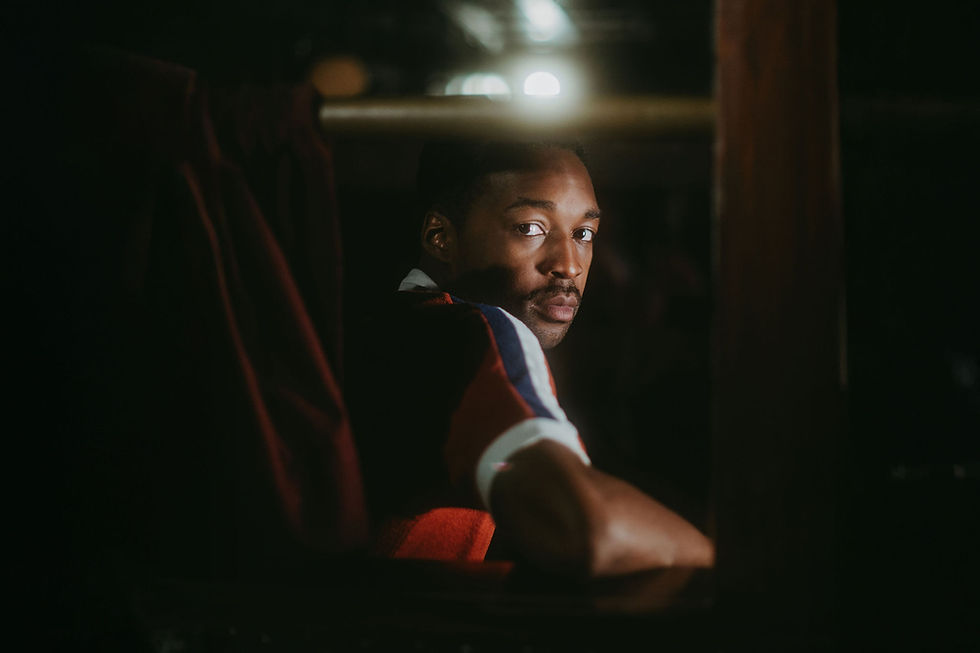ACTUALLY, DO MIND THE BOLLOCKS – PISTOL: REVIEW
- Jun 7, 2022
- 3 min read
Updated: Jun 7, 2022

(The Sex Pistols version II, from Pistol)
INSIDE DANNY BOYLE’S PISTOL - ostensibly the story of The Sex Pistols; more broadly the story of a moment of cultural change in the UK; more intimately the story of a brutalised, functionally illiterate, musically inept thief who stumbled into a band that lasted two years, made one album and set him up in a picaresque life – is another tale I’d love to see told.
Not by the director, Boyle, necessarily, most definitely not by Pistol’s creator/writer Craig Pearce, who adapted guitarist Steven Jones’ autobiography into a six episode series, but a story well worth seeing: how Akron, Ohio’s Chrissie Hynde, found herself in London at the nexus of this cultural upheaval, a journalist and songwriter, an American, a woman – all enough hurdles to cripple a career in 1970s Britain - and built a career of many moments of brilliance, longevity, belligerence and inspiration.
Shown just off centre throughout Pistol, as Jones’ confidante, lust object and droll adviser (but not his guitar teacher, thankyou), as the girlfriend of all-too-self-aware journalist Nick Kent, one of the workers in Vivienne Westwood and Malcolm McLaren’s apparel/insurrection/art wank SEX shop, and a musician looking for fellow travellers who might notice this is someone with more going for her than just about anyone in their circle, Hynde, as portrayed by Sydney Chandler is the breakout character of the show.

(Looking for her own, better, biopic: Sydney Chandler as Chrissie Hynde)
That’s a good bit of Pistol. As is the oomph and fecundity in the “found” music, whether it’s the musical inspirations the as-yet-not-named-punks borrowed from (Bowie, Stooges and reggae generally, Betty Davis and The Who) or the juxtaposition of the excessive or just dire music they theoretically rebelled against (Rick Wakeman soundtracking a brawl, Leo Sayer soundtracking a psychiatric ward exercise class) and the TV shows they outraged.
And to that you can add Boyle’s visual playfulness, the grim, sweaty and sometimes hilarious archival footage painting the early 70s as a world of brown and grey (that in truth, makes the stylised grot of much of Pistol look shiny and unreal), Maisie Williams surprisingly strong as Pamela Rooke/Jordan, and the fact that the actors in The Sex Pistols – Toby Wallace as Jones, Christian Lees as Glen Matlock, Jacob Slater as Paul Cook, Louis Partridge as John Richie/Sid Vicious, and Anson Boon as John Lyndon/Rotten – actually play/sing and carry that energy.
The not so good bit? Pretty much any time anybody speaks. When the music isn’t happening Pistol isn’t just bollocks, it’s risible bollocks, laughable bollocks.
Pearce’s script is clumsy, stilted, overwritten and rampant with over-explaining that would make a Cliff Notes for Year 7 embarrassed. He makes exposition painful and entirely unbelievable even if some of the guff might actually have been said (given McLaren - played by Thomas Brodie Sangster - in particular was a right tosser who believed he was genius, even or especially when he was wrong) and a lot of the sentiments were actually felt (particularly by Jones, played with some charisma and sensitivity by Wallace)

(He's seen the script: Anson Boon as John Lydon/Johnny Rotten)
From Jones in the first episode offering that the pompous long soloing of the prog bands doesn’t mean anything to unemployed kids so a revolt is needed, and remnants of the Bromley Contingent telling us how boring the London suburbs are so let’s destroy shit, to McLaren declaring “tonight a movement is born” as he watches a party get messy, a pair of Yorkshire school girls being lectured to by Jordan about making their own way, and Hynde telling Jones to stop trying to get in her pants and “go fuck the music” instead, clunkers abound.
Boyle works the visual metaphors accompanying those lines so hard he almost answers the question what would Pearce’s regular collaborator, the never knowingly undersold Baz Luhrmann, have done with the Pistols instead of Elvis. (Please god, let no one ever answer that question.)
Lydon fought and lost in the courts trying to get this show stopped because he felt it wouldn’t tell his story properly and had no right to even try, and he is definitely not the central figure he might want to be. However, he has been embraced by Boyle for taking that action, the director claiming these objections, and Lydon – a man who has done ads for sandwich spread, appeared on a celebrity reality show and found a late-in-life fondness for a number of British institutions – embody the icon-busting rebelliousness the original band lived and this show relates.
That may be disingenuousness (thanks for the publicity mate, that’s perfect, ta) or maybe Boyle means it, but in retrospect Lydon’s most effective argument wasn’t legal anyway, but time and exposure. The judge hearing his case could have said don’t try to keep Pistol away from people, sir, just let them see an episode: that will do your work for you.
Pistol is screening now on Disney+




Comments